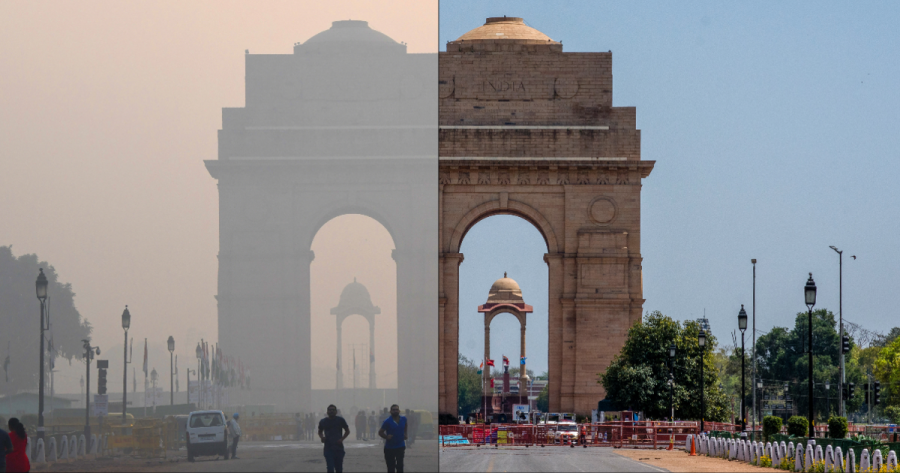The Bright Side of COVID
How Graded is contributing to a decrease in pollution
The outbreak of COVID-19 has placed the world in what many call “unprecedented times.” The city of Sao Paulo has quarantined for the past 6 months since the first lockdown orders were implemented per the mayor’s instructions in early March. With governments instituting rapid changes, the definition of “normal” quickly shifted. This new reality is aimed at containing the spread of the virus. Thus, social and academic responsibilities have transitioned to a distance. With the move towards online learning, Graded’s 800+ families no longer have to commute to school. This, along with decreased electricity, and reduction of food waste, are examples of unplanned changes that resulted from campus closing, which also have the potential to positively impact the environment. In this article, The Talon set out to explore the degree to which these unintended consequences have really made a change.
While the pandemic has led to an economic catastrophe and claimed almost 1 million lives, its impact on pollution has been positive. São Paulo is one of the most polluted cities in the world due to the constant release of carbon emissions and NO2, and electricity waste. However, many of the activities that contribute to increasing pollution unintentionally decreased because of the circumstances required for citizens to quarantine. INPE (Instituto Nacional de Pesquisas Especiais) reported that since quarantine tightened in March, São Paulo’s pollution has decreased a total of 50%.
Graded has been forced to put a stop in its ordinary activities, which coincided with the commute of thousands of people, endless electricity use, an exaggerated number of unused school supplies, and unprecedented amounts of food waste. On a regular school day, the Graded campus was filled with over 1800 people. Most of these individuals commute to school by car or bus, consequently contributing to the excessive traffic build-up in the city. Traffic is one of the main catalysts of air pollution; it generates an excessive release of No2. Air pollution is deadly, killing nearly 5 thousand people yearly, just in São Paulo. During the first hectic five months of the pandemic, only around 20 staff members were going to campus, corresponding to a 99% decrease in people commuting. These thousands of fewer daily commutes may not seem like a lot, however, when considering that it is not just Graded that has decreased its emissions, but the entire city of Sao Paulo, the numbers add up quickly to a 50% decrease in the City’s overall pollution.
Nonetheless, as Graded prepares to reopen, the number of individuals on campus daily has increased from 20 to 150 people. . While that is still an 83% decrease from the average number of individuals on campus before its closing, it brings up the question: were the improvements to pollution only short term?
As the world returns to normal again, it is important that we protect some of the environmental improvements achieved during these times. China, for example, experienced drastic decreases in air pollution during its intense period of quarantine, however, with things opening up again, they regressed to their original state of environmental catastrophe. It is very probable that as Sao Paulo returns to normal, the same will occur, so The Talon urges that readers use China as a warning, continuing with some practices that lead to environmental improvements.
With this article, The Talon hoped to shed light on how effortless it was to decrease pollution during the pandemic, and highlight how everyone has to start somewhere. Hopefully, readers feel encouraged to implement simple changes to their daily routines. Their lives go back to normal, like carpooling, turning the lights on when they leave the room or keeping the air conditioning off. Moving forward, we must remember these times. The impact it has had on our environment goes beyond statistical evidence. The new environment we find ourselves in, the one that Graded in a way helped create, is one that offers us all a better and healthier life.

As a second year Talonista, Sofia kicks off her last year at Graded with her returns to the Talon News section. Sofia, commonly known as Sutter, has written...










